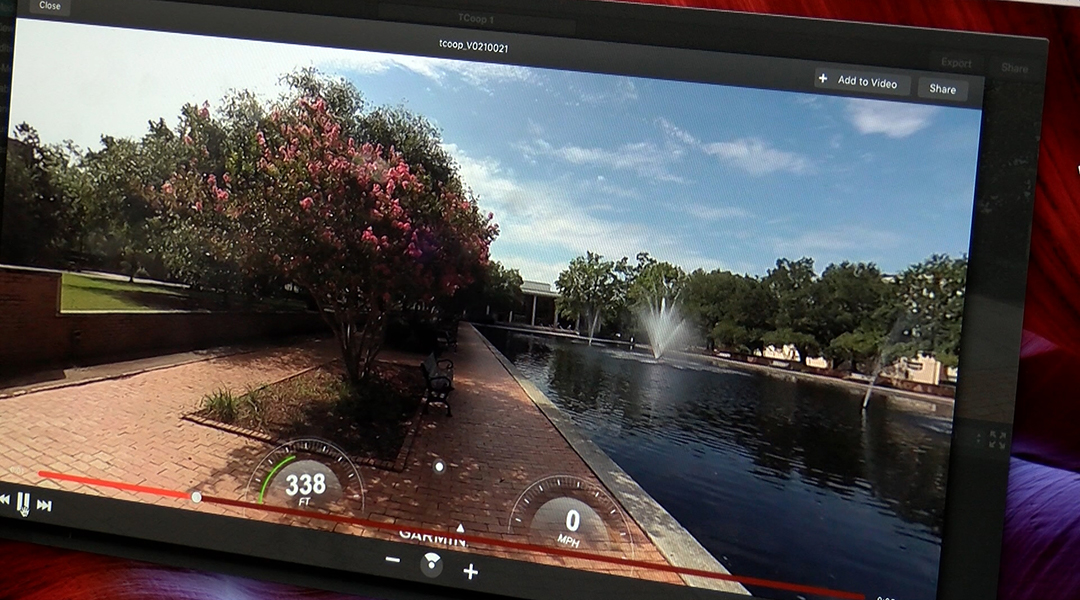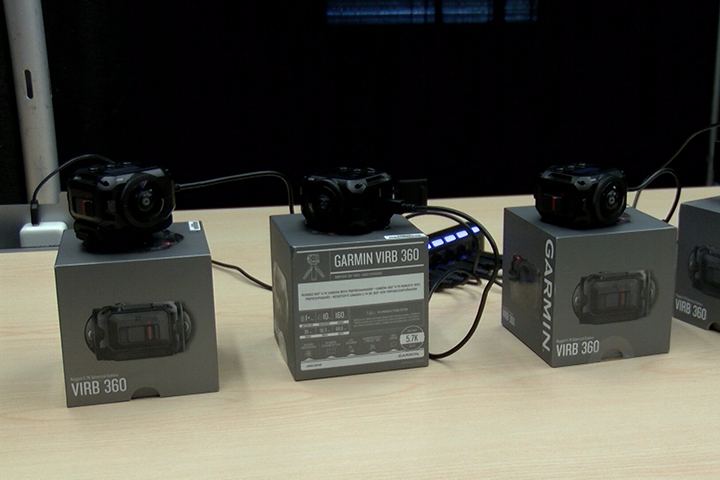
Picture taken using 360 degree camera.
The University of South Carolina tried something new and hosted its first Virtual Environment’s boot camp from June 25-29.
The boot camp was designed to introduce faculty and staff within the USC campuses and other affiliated campuses to three different types of virtual environment: augmented reality, 360-degree video and virtual reality.
Each virtual environment provides something different. Augmented reality overlays virtual objects on the real-world environment. 360- degree video and virtual reality are similar, but virtual reality immerses the users in a full artificial digital environment.
The Center for Teaching Excellence at USC hosted the camp at the School of Journalism and Mass Communications. Augie Grant, director of the Center for Teaching Excellence, and a team of experienced educators and experts in virtual technologies ran the camp.
“Virtual reality gives you an opportunity in teaching to create an environment that never existed before and also helps find a way to teach a lesson,” said Grant.
Dr. Brian Mihalik, a William McFall “Mac” Pearce Professor award winner, integrated 360 virtual reality into his class last spring.
“On Tuesday’s we did what we called Travel Tuesday’s. We immersed the students in different international tourism destinations by having them put on headsets and 360 goggles with phone, and they visited places through those goggles,” said Mihalik.
Universities across the country are using virtual reality as a teaching skill, because it gives students a chance to experience things instead of just reading them. Virtual reality is aims to work for any field of study.
“Every faculty member will have to think of their content and the subject they teach in and how they can best use this,” said Tena Crews, associate provost for academic programs.
The University of South Carolina hopes to bring virtual reality into classes by 2019.
“I think it’s an awesome idea. I think anything that we can do more with technology and especially with the online environment, which we deal with a lot. I think it would really enhance the classroom, get the students involved more in experiential learning and enhance the learning overall,” said Crews.
.


